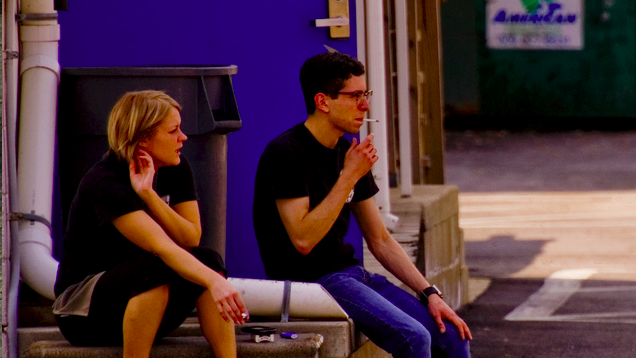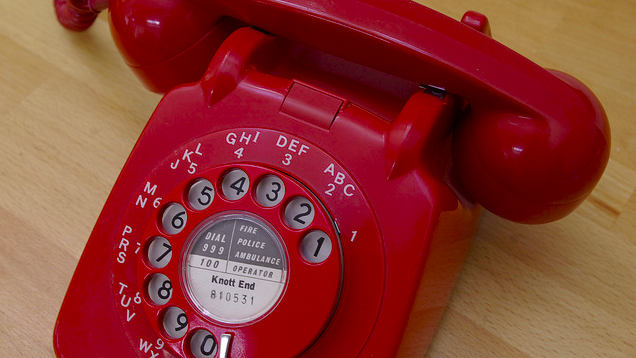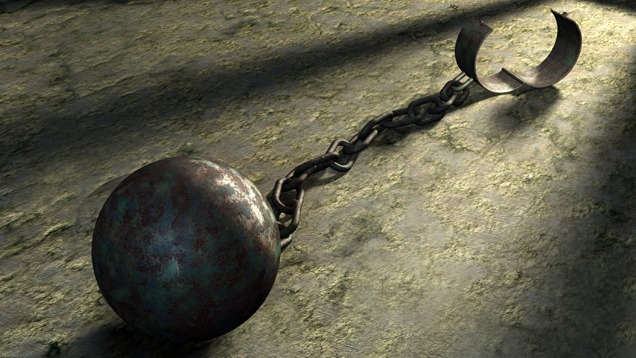For many of us, topics like addiction and substance abuse seem far removed. It seems like they affect other people and don’t (or will never) concern us — the same way depression, anxiety or other issues can seem remote to those who don’t experience them. But the truth is addiction is an insidious disease that can creep up on you or very possibly already be hurting someone you know or love.
Picture: Andrea Danti (Shutterstock), felixtsao, DaveBleasdale
According to the Australian government, almost 700 agencies provided over 150,000 treatment episodes for alcohol and other drug issues in Australia in 2011 and 2012. Add to that the millions of teens and adults with other addictions, such as gambling, food and sex, and you can see why it’s considered to be one of the top health problems we face as a society. Addiction is one of the most devastating — yet treatable — diseases.
Sadly, statistics like these and PSAs often do little to get people help. Words like “addiction”, “substance abuse” and “disease” carry such a stigma that we don’t usually see the problem, much less admit it or discuss it head on. But maybe your best friend, your sister, your son, your co-worker or you yourself need(s) help. We need to talk about it frankly — and without shame. So here’s what we’ve learned about addiction from medical experts and personal experiences.
What Addiction Is
The word “addiction” is derived from Latin words meaning “handed over” or “bound to” (as a slave). Anyone who’s ever felt addicted to something — whether it’s a video game, girlfriend or boyfriend, or a substance — understands the connection and that death grip.
I used to be a pack-a-day smoker (back when it was much more socially acceptable, not that that makes me feel much better), and I remember thinking every morning over the many years I tried quitting, “Today I am not going to smoke… or at least I’ll cut down.” By the end of the day, with a whole pack or more gone, there was the usual disgust, the self-incrimination, and the feeling like I was trapped and hopeless.
The National Institute on Drug Abuse defines drug addiction this way:
Addiction is defined as a chronic, relapsing brain disease that is characterised by compulsive drug seeking and use, despite harmful consequences. It is considered a brain disease because drugs change the brain; they change its structure and how it works. These brain changes can be long lasting and can lead to many harmful, often self-destructive, behaviours.
You could substitute other addictive things for the word “drug” above, as most addictions affect the same brain pathways (more on that in a bit).
Based on the definitions above, it’s not hard to see how many of us abuse or have a dependence on other things beyond illegal drugs. We experience caffeine withdrawal symptoms, don’t get the same satisfaction from just one beer, or can’t stop playing just one more video game level.
Whatever you call it, at its most basic level, “addiction is really the pursuit of pleasure and the avoidance of displeasure,” says Dr Scott Glassman, Clinical Assistant Professor and Associate Director of the MS program in Mental Health Counseling at the Philadelphia College of Osteopathic Medicine. Also note that he says the pursuit of pleasure and not actually pleasure.
Harvard’s health site offers these three questions to help you determine if you might have a problem:
A “yes” answer to any of the following three questions suggests you might have a problem with addiction and should — at the very least — consult a health care provider for further evaluation and guidance.
- Do you use more of the substance or engage in the behaviour more often than in the past?
- Do you have withdrawal symptoms when you don’t have the substance or engage in the behaviour?
- Have you ever lied to anyone about your use of the substance or extent of your behaviour?
How Addiction Changes the Brain
TED-Ed’s video on sugar describes how it and other addictive substances, like alcohol and nicotine, get us hooked. They activate our brain’s reward system and cause a spike in dopamine levels, making us feel euphoric.
Over time, however, we develop a tolerance to the substance and need more of it to get as much reward as we used to. Dr Glassman explains:
There is a part of the brain closely tied to addictive behaviour called the nucleus acumbens, or “reward center.” Activity in this area is related to how much a person wants something. Anything that is pleasurable can increase activity in the nucleus acumbens, and lead to an addiction (food, gambling, video games, etc.)
Stimulant drugs like cocaine and amphetamines cause increases in dopamine, which enhances excitement, alertness, activity, and mood. As a result of repeated stimulant drug use, this brain structure is increasingly able to release dopamine, and leads to increased desire for the drug. At the same time, the nucleus acumbens stops responding to other incentives, like sex, and filters out other more traditional signals that help us find activities rewarding. Individuals, as a result, find more and more of their lives devoted to pursuing the drug.
This video from CNN further demonstrates how our brain gets rewired into dependence and are notably different from non-addicted brains.
The physiological aspects of addiction aren’t yet entirely understood, and they may differ from person to person. A Yale brain scan study, for example, found that men and women with addictions respond differently to stress and drug/alcohol cues, and so their optimal treatments might differ. Studies of identical twins suggest that genes may be responsible for about 50 per cent of addictions to substances, while environment makes up the other half of probability.
The Psychological and Social Sides of Addiction

Everyone who’s ever tried to beat an addiction knows that the physical aspects of it are small compared to the mental ones. Even if you can reduce the physical cravings — with medication, for example, that inhibits dopamine — pure habit and other psychological factors can still compel someone who’s addicted.
What makes one person seem more vulnerable to addiction than others? Besides the physical factors, environment and internal factors contribute a lot. Joseph Troiani, Associate Professor of clinical psychology and coordinator of the substance abuse counseling program at the Adler School of Professional Psychology in Chicago, says:
There is no one specific trigger, but there are many contributing factors and high risk behaviours that contribute to the addictions spectrum disorders.
- Physiological Factors – Pre-natal substance use exposure, genetic predisposition, psycho-pharmacology of the substance being use, and the person’s body ability to tolerate the substance.
- Psychological Factors – Stress/distress, anxiety, depression, and physical/psychological pain all increases one’s likelihood of using substances
- Social – Exposure to substance use in one’s family, community, or even one’s job are possible contributing factors
- Spiritual – Loss of purpose, hope, or struggling with the meaning of it all.
As with most complex health matters, addiction triggers vary for each person. But no one wakes up wanting to be or become an addict — or label themselves as such.
Personally, I feel the biggest issue is the way we perceive the things we get addicted to — we attach unrealistic value to them and develop a crutch, perhaps one that’s supported by the people around you. Here’s an analogy: Imagine strawberries were really scarce and expensive, but you were lucky to get some every day or so. You could only eat them at specific times during the day and if you were caught eating too many, most people would frown upon you. But they taste so good! (And also trigger euphoric chemical changes in your brain.) When you get together with your friends, they’re all eating strawberries too, even though too many could be unhealthy. If you don’t eat a strawberry, you feel a sort of emptiness and also like everyone’s thinking something is wrong with you.
You get the picture. Strong social and external triggers help make addiction a vicious cycle, seemingly inescapable for some. (Jezebel posted this haunting, courageous firsthand account of someone so addicted to alcohol she’d secretly swig mouthwash.)
How to Get Help

You’ve heard it before, but the first — and hardest — step is to admit that there’s a problem, at least to yourself. If loved ones are concerned about you, you should be too, but only you can motivate yourself to truly change.
After that, treatment options depend on your case. Not surprisingly, most of the doctors I spoke with for this article recommend seeing a medical professional, who could offer medication if necessary combined with behavioural therapy. But Dr Glassman warns about finding someone with the right approach for you:
Overcoming addiction may involve detoxification, medication to combat withdrawal, and individual and group therapy for different lengths of time. Motivation for change often fluctuates, and there’s typically great ambivalence around stopping drug use. Coercive, confrontational approaches can actually increase someone’s determination to keep using or engaging in the addictive behaviour, versus a style of interaction that is more accepting, person-centered, and guiding (motivational interviewing) that focuses on helping a person explore their own desire, ability, reasons, and needs to stop the behaviour.
There’s no one-size-fits all approach to overcoming addiction (and in the case of alcohol addiction, the rehab industry may be harming us more than helping).
If you don’t have a doctor you can talk too, the Lifeline has a hotline (13 11 14) for information and referrals. They can also help friends and family members who are concerned about a loved one.
This takes an enormous amount of courage to face, but as journalist and editor Jolie O’Dell writes of her recovery:
That’s really the only reason I write posts like these: Not because I’m soooo proud of myself or because I want to “show off” my damage. I want you, dear reader, to know that your drinking or drug problem doesn’t have to hold you back forever. You can start making those little choices, and you can break your own cycles. And when you do, I swear to God, your life will change in the most beautiful, gratifying, and mind-blowing ways. I am living proof of that; these aren’t just hollow words. And for me, that proof is the best thing about recovery.
If addiction is affecting you or someone you know, call Lifeline on 13 11 14.

Comments